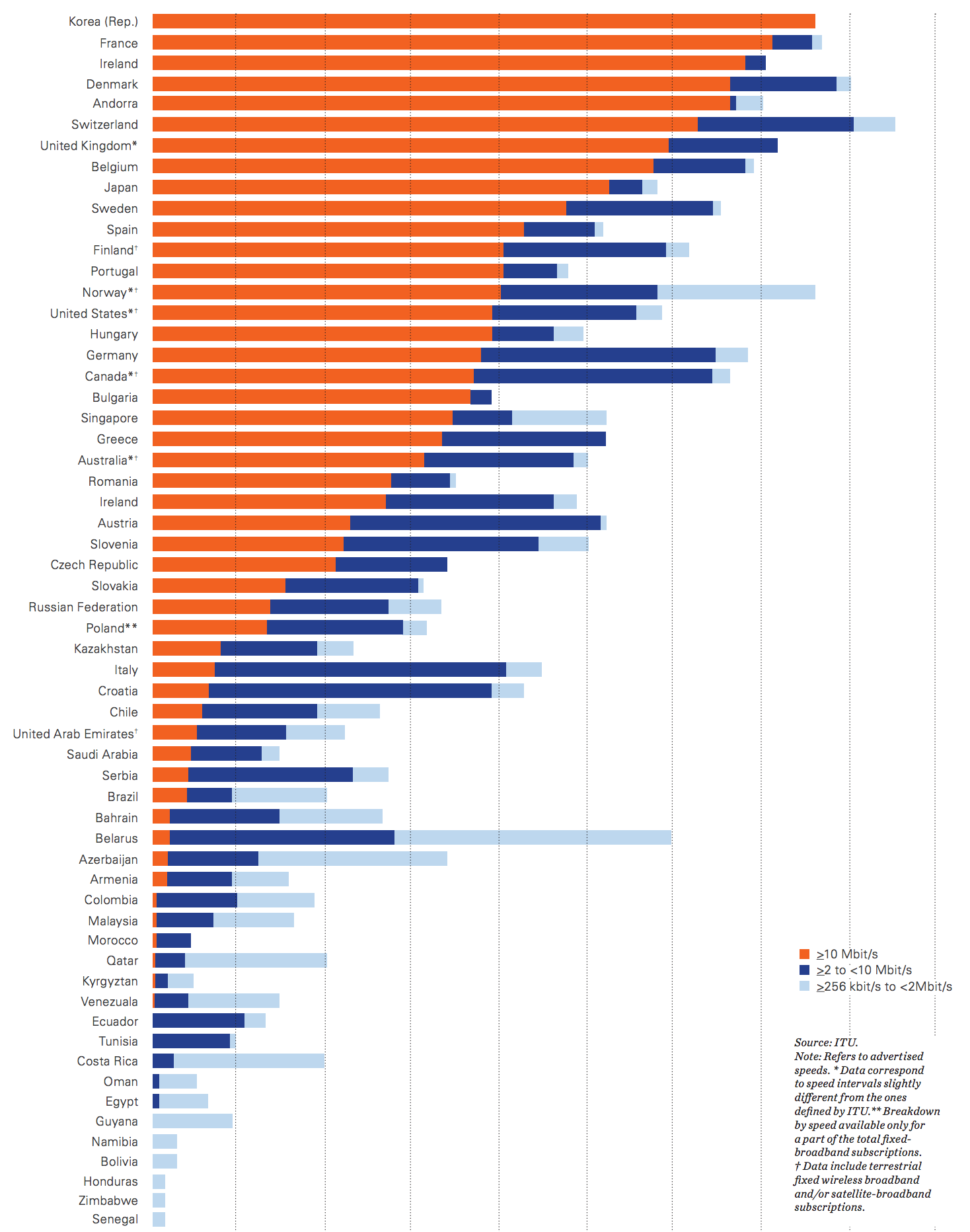- Dec 30, 2012
- 4,809
A report on internet usage worldwide released by the International Telecommunications Union (ITU) says that 3.2 billion people will be using the internet by the end of 2015.
The report, which is released yearly, details trends in ICT growth and the connectivity gaps remaining worldwide. This year’s release shows a significant amount of progress made since 2000, but still a decent road ahead in developing countries.
For every internet user in the developed world there are now two online in the developing world, meaning there are 4 billion people in developing countries who are still not connected/online.
The ITU expects there will be more than 7 billion active cellular connections by the end of 2015, which has grown from 738 million in 2000. 2G networks now cover 95 percent of the population while 3G networks only cover 69 percent but are slowly expanding to rural locations.
Internet usage is highest in Europe, with 82.1 percent of people connected at home, followed by America at 60 percent.

Article
The report, which is released yearly, details trends in ICT growth and the connectivity gaps remaining worldwide. This year’s release shows a significant amount of progress made since 2000, but still a decent road ahead in developing countries.
For every internet user in the developed world there are now two online in the developing world, meaning there are 4 billion people in developing countries who are still not connected/online.
The ITU expects there will be more than 7 billion active cellular connections by the end of 2015, which has grown from 738 million in 2000. 2G networks now cover 95 percent of the population while 3G networks only cover 69 percent but are slowly expanding to rural locations.
Internet usage is highest in Europe, with 82.1 percent of people connected at home, followed by America at 60 percent.

Article
